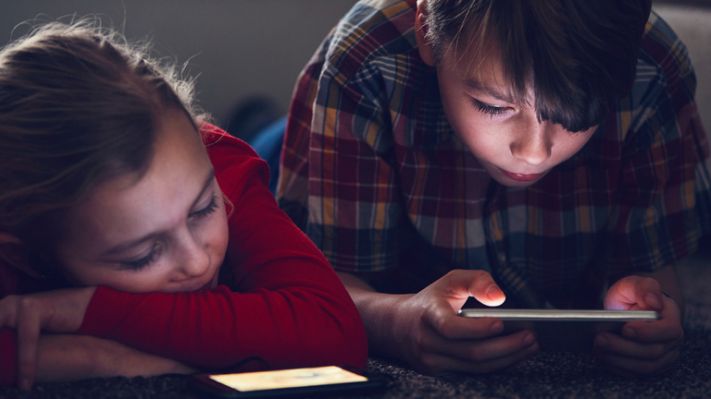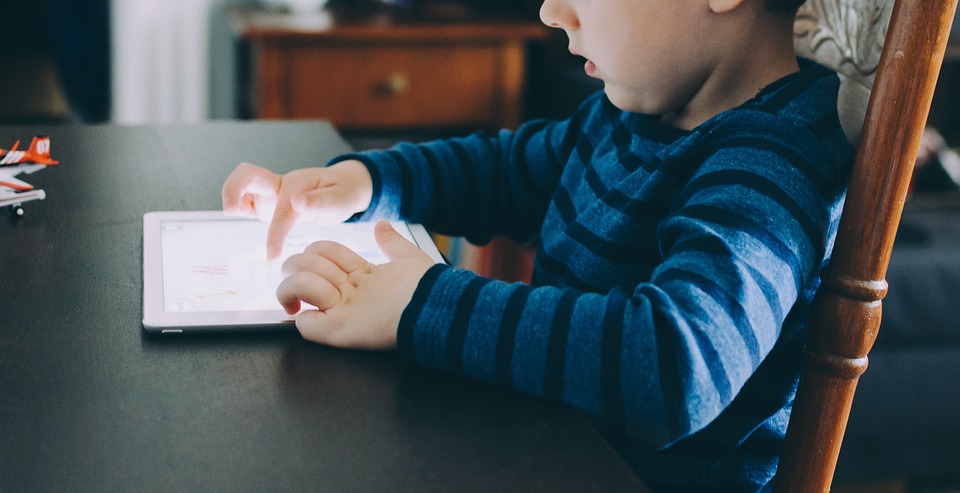Let’s admit it we are all guilty of letting the kids watch TV while we are cooking or giving them their i-pad while we are trying to have a nice dinner in a restaurant, we’ve succumbed to the age of digital babysitting – but at what cost?
Last year more than ever our kids have spent more time on-line learning, video gaming, researching and even celebrating birthdays and chatting to grandparents on-line but now how do we gradually wean them (and us) off this habit? Our constantly connected lifestyles rarely allow us to switch off. Our phones, laptops and tablets mean we can shop online, surf the net, check work emails, and scroll through social media anytime we like -including when we’re curled up in bed. And our kids watch us!
Our children are also increasingly being affected by too much screen time. Playing games on tablets, chatting with friends online, and watching TV in bed have all crept into the nightly routine.

The result of these constantly connected lifestyles? Many of us are becoming chronically sleep deprived. This in turn can negatively influence everything from our productivity and memory, to our stress levels, eating habits, and even our relationships.
Screen Time Harms Our Sleep
Our electronic devices emit something called ‘blue light’, which is the same wavelength of light as the morning sun. This tells your brain it’s time to wake up and stops the release of melatonin; the hormone produced by your brain in the evening to make you feel sleepy.
Such devices can also be a source of overstimulation and stress. Kid’s homework, work emails, scrolling through the news, online gaming, or watching a movie often leave us feeling alert and switched on, just when we should be dropping off. This has become a major problem for our kids who are often up until late completing homework or chatting online to friends. Many recent studies have confirmed that kids who get excessive screen time are experiencing delays in their development. Kids are watching screens instead of riding bikes, throwing a ball or interacting with friends, all of which are really important for helping kids thrive.

Tips For Limiting Screen Time
To help you and the kids limit your evening screen time, try the following five tips:
1. Have a device shut-off time
At least two hours before bed, turn off all laptops, tablets and phones. As a family, you might want to decide on a specific time so everyone turns off their devices together. Being consistent about when this happens is the key to success.
2. Go silent
If turning off all of your devices feels like too much of a stretch, try turning off email alerts and push notifications for your apps. Go one step further and put your devices away in a drawer or another room. Out of sight is out of mind.
3. Set a schedule
Setting a fixed period for screen time is especially useful for kids. Choose a time of day, and a duration, when they can watch TV, or play on their devices. That might involve giving them one hour while you cook dinner. To automate screen time and stay consistent, tools such as Circle let you limit when and for how long everyone is online.
4. Apply a blue light filter
Most smartphones have a built-in night setting that apply a blue filter to your screen. This reduces eye strain and helps you have a more restful night’s sleep. You can also download a free programme called f.lux for laptops.
5. Have a device-free bedroom
This one is harder to impose especially with older kids who rely on their laptops for school work and smart phones for their connected social life! Come bedtime, encourage everyone to leave their devices in another room and rely on a regular alarm clock to wake you. You’ll be less likely to check your phone if you have to crawl out of bed to find it in the dark. Ensure older kids don’t charge their laptops or phones right next to their bed and definitely always check smart phones are not under their pillows frying their brains as they sleep!
The good news is that children’s brains continue developing after the age of 5 and beyond into adulthood, so it’s never too late to make changes. We can’t get rid of Netfix or burn their i-phones without a mutiny on our hands but we can manage our kid’s digital consumption and help them to learn how to use them responsibly and foster healthy device habits.














